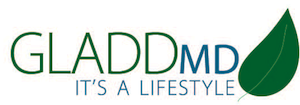Integrative medicine is in the unique position to take advantage of all of the healthcare technology solutions being released at record pace. The portals, tracking programs, and social networking interaction are all very exciting and give users lifestyle-changing experiences never before possible. Unfortunately, what's also happening rapidly is that technology is moving at a faster rate away from doctors. I received 15 minutes of nutrition during my 7 years of medical school and residency, and nearly zero exercise physiology that could be applied in the real world. How is the average physician able to carry the conversation around optimal nutrition tracking and other lifestyle change? In addition to lack of education is the hamster wheel of seeing 30 patients a day, reviewing their patients' labs and tests, renewing medications and answering messages in their workday allows them no time to interact with patients who desire guidance on their lifestyle and engagement with today's technologies.
So we have great tools for patients for empowerment, change, interaction but very little guidance from the health profession to interface this with prevention and/or management of health conditions. Patients are doing most of these things outside of their physician.
Enter integrative medicine. Healthcare providers who have been through the conventional training to understand disease management of conditions when it's needed, but who truly understand how lifestyle impacts health or lack thereof. There is no better captain for the healthcare team than the provider whose seen the light and dedicated their practice toward optimal health. Notice I use the word captain and not general or manager. Providers are still viewed as the head of the health care team, by both patients and payors (either employers or insurers). In order to accept and embrace this role, though, today's providers need to better understand whole foods nutrition, stress management and physical fitness. Whether they educate themselves or surround themselves with team members that do, it's a necessity.
Integative providers taking a centrol role in our society's health is essential. Traditionally, their healthcare is based on spending time listening to patients and educating them. Largely done in one-on-one visits, the scalability of such a model will not allow this message to get very far. It's going to take technology and team members to branch out and reach more folks.
Integrative Medicine 2.0 is what I call it. It's the high-tech, high-touch approach that empowers the patients, keeps the cost low by utilizing technology and promoting true prevention. It represents the movement that will improve health on a larger scale. To change medicine for good. What technology tools can support and sustain this movement? I have taken the principles of Integrative Medicine from its father, Dr. Weil and applied the technology that supersizes each one to reach more patients, for the good of us all.
Principle 1: Patient and practitioner are partners in the healing process
Technology: Today's technology allows a unique connection between practitioner and patient like never before. The relationship is enhanced with the ability to directly connect to practitioners via tools like email and video conferencing as well as stay connected via their online presence.
Principle 2: All factors that influence health, wellness and disease are taken into consideration; including mind, spirit, and community as well as the body.
Technology: Using social networking and intelligently designed tools to promote health through lifestyle change, improvements in stress management as well as accountability and success, technology can be a major tool driven by providers to support patients’ path of health.
Principle 3: Appropriate use of both conventional and alternative methods facilitate the body's innate healing response.
Technology: Allows providers to deliver evidence-based content to their patients either within a practice portal and/or social networks to keep them up to date and educated. They are also able to easily present content via their online presence and within the office visit about drug-nutrient depletion, drug-herb or drug-supplement interactions
Principle 4: Effective interventions that are natural and less invasive should be used whenever possible.
Technology: Breeds a relationship that is built on connection and enabling lifestyle change. The providers able to interface these tools within the scope of care as well as the healthcare database (EMR) will be able to show patients their progress in the big picture and keep them engaged.
Principle 5: Good medicine is based in good science. It is inquiry-driven and open to new paradigms.
Technology: Technology has become a necessity for providers stay up with evidence-based protocols and new ideas for therapies. Allowing them to connect with other providers for educating and inspiring best practice as well as delivering this to their patient population easily both as content and as motivational/interactive tools.
Principle 6: Alongside the concept of treatment, the broader concepts of health promotion and the prevention of illness are paramount.
Technology: Enables the ability to create social networking and interactive features to inspire and guide health promotion through the most powerful means necessary: lifestyle change. Just as important is to be able to interface these features within a bigger portal that allows the patient and practitioner to see the bigger picture in regard to overall health and prevention.
Principle 7: Practitioners of integrative medicine should exemplify its principles and commit themselves to self-exploration and self-development.
Technology: Allows providers to interact with patients on a whole new level, which has value (should the provider desire and/or feel comfortable) in exposing certain aspects of the provider's lifestyle for their own accountability as well as their patients’ inspiration and education.
The best news? All of this technology is available today! Time to start changing the paradigm of the new paradigm. Welcome to Integrative Medicine 2.0.
 GladdMD On
GladdMD On  Thursday, December 1, 2011
Thursday, December 1, 2011 



